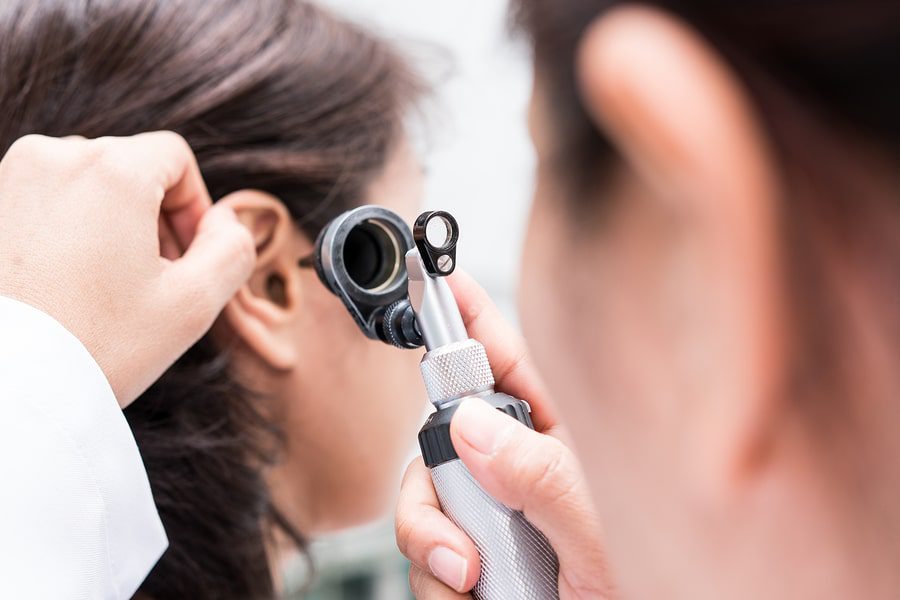
- shaid
- Posted on
Hearing Loss In One Ear
In certain people, hearing loss on one side is normal. Hearing loss of a particular ear occurs when you have trouble hearing or deafness that only affects one ear; however, you can generally hear in the other ear. This condition may cause difficulty in recognition conversation in crowded situations, like finding the source of a sound and tuning out background noise.
This state of hearing loss in one ear is also acknowledged as unilateral hearing loss or unilateral deafness. It may be defined as hearing loss in one ear, deafness in one ear or on one side, or inability to hear from one ear.
If you are undergoing any hearing loss, then always consult your doctor. Unexpected hearing loss either on one or both sides needs urgent medical care. Doing this might save you from some serious issues. Based on the cause of your hearing loss, the doctor prescribes you some medications, surgery, or hearing aid if needed or can even refer to you some specialist if there is any seriousness.
Hearing Loss On One Side: What Are The Causes?
Hearing loss in one ear can occur due to many reasons, some of which includes-
- Any ear injury
- Loud noises
- Certain drugs
- Ear blockage
- Tumour
- Illness
Hearing changes is a natural process that can be a result of aging. Some of these problems are reversible, like wax build-up in the ear canal or ear infections due to liquid build-up. But some of them are inevitable, like the ones that occur due to the function of the ear itself.
In addition, if you feel some strange thing in your ear or an ear injury, then the result of hearing loss in one ear is due to the following medical conditions-
- Acoustic neuroma: Tumour that forms on that cause hearing loss and irregularity.
- Eardrum rupture: Tiny hole or tear in the eardrum.
- Labyrinthitis: Infection of the internal ear or the tissues that connect the inner ear to the brain.
- Meniere’s disease: A disorder that started with one ear and later affected both
- Neurofibromatosis type 2: Tumours that occur on the tissues for stability and hearing shrinking to the inner ear
- Otitis externa (swimmer’s ear): The external ear canal that runs between the eardrum and the external head
- Otitis media with effusion: Non-infected fluid in the middle ear space
Hearing loss in one ear may additionally be the outcome of medicine medications such as-
- Diuretics like furosemide
- Salicylate (aspirin) toxicity
- Antibiotics like tobramycin and streptomycin
- Chemotherapy drugs
Treatment Of Hearing Loss In One Ear
Treatment decisions for your hearing loss will rely based on your health. In a few cases, the hearing loss will be immutable. If there is no other treatment for hearing loss, your doctor can prescribe hearing care, which helps to enhance your hearing problem.
Other treatment may comprise-
- Surgical removal of a tumor or reconstruction of the ear
- Antitoxins to handle infection
- Steroids to diminish swelling and inflammation
- Stopping therapy of the medication that may generate a hearing loss
Hearing loss can be caused by wax buildup that can be treated by gently pulling out the earwax. You should try without a prescription product at houses like a few drops of mineral oil, baby oil, hydrogen peroxide, or earwax evacuation products like Debrox. If your condition is not improved within infrequent days through these products, you should continuously take specialist guidance.
Continued usage of these products can irritate your ears. If you possess a foreign article in your ear that affects your hearing, do not strive to exclude it on your own. Never embed cotton swabs or any other objects like tweezers to exclude a foreign body, and all these things can induce ear trauma. If you experience any additional symptoms, such as facial weakness, imbalance, neurological symptoms, or dizziness, you should contact your doctor right away.
CROS HEARING AID
CROS is a hearing aid technology for people with unilateral hearing, also known as single-
sided deafness. The typical wearer is someone who has relatively normal hearing in
one ear and hearing that can’t be helped with standard hearing aids in the other.
The CROS is worn on both sides.
